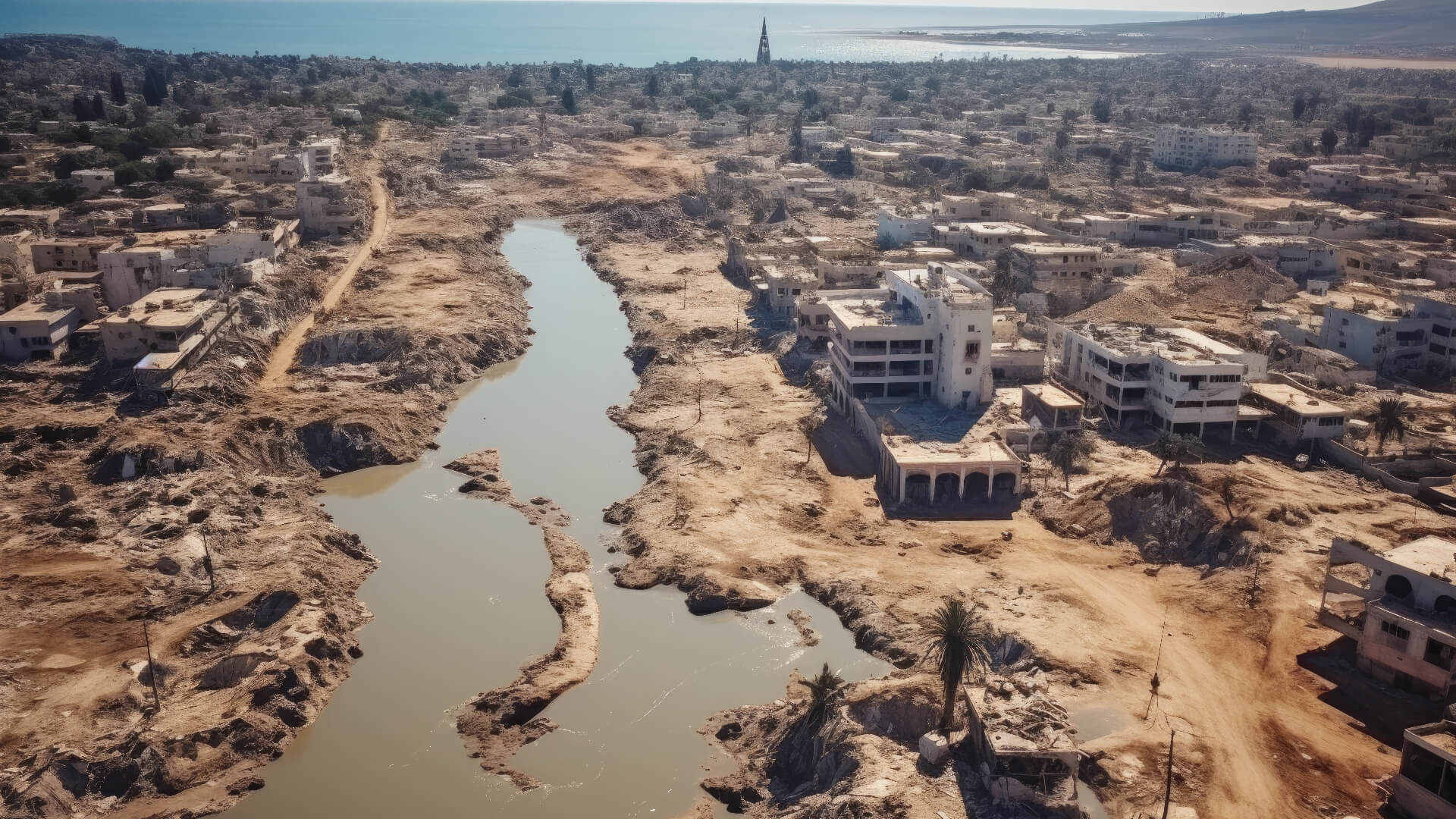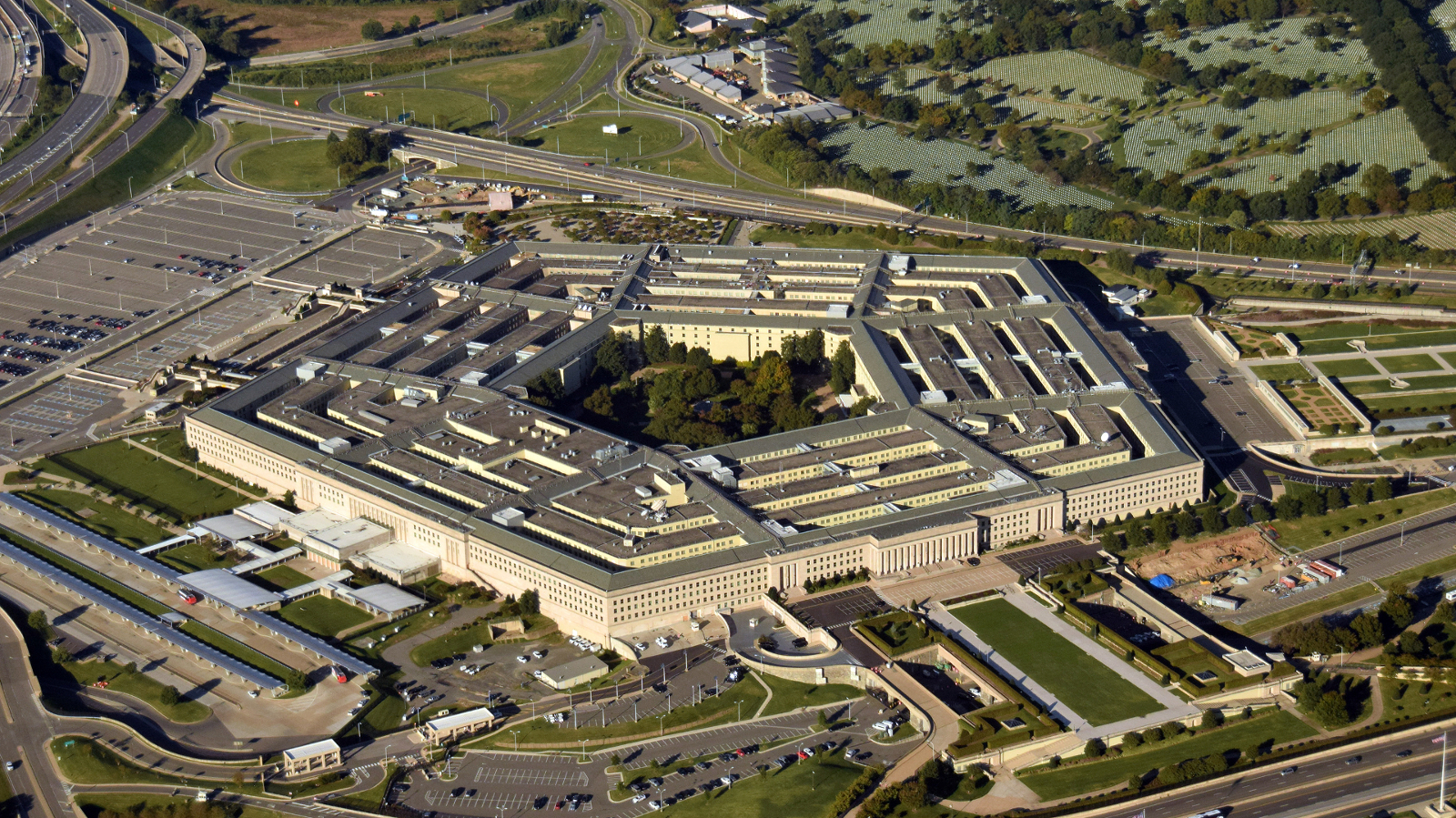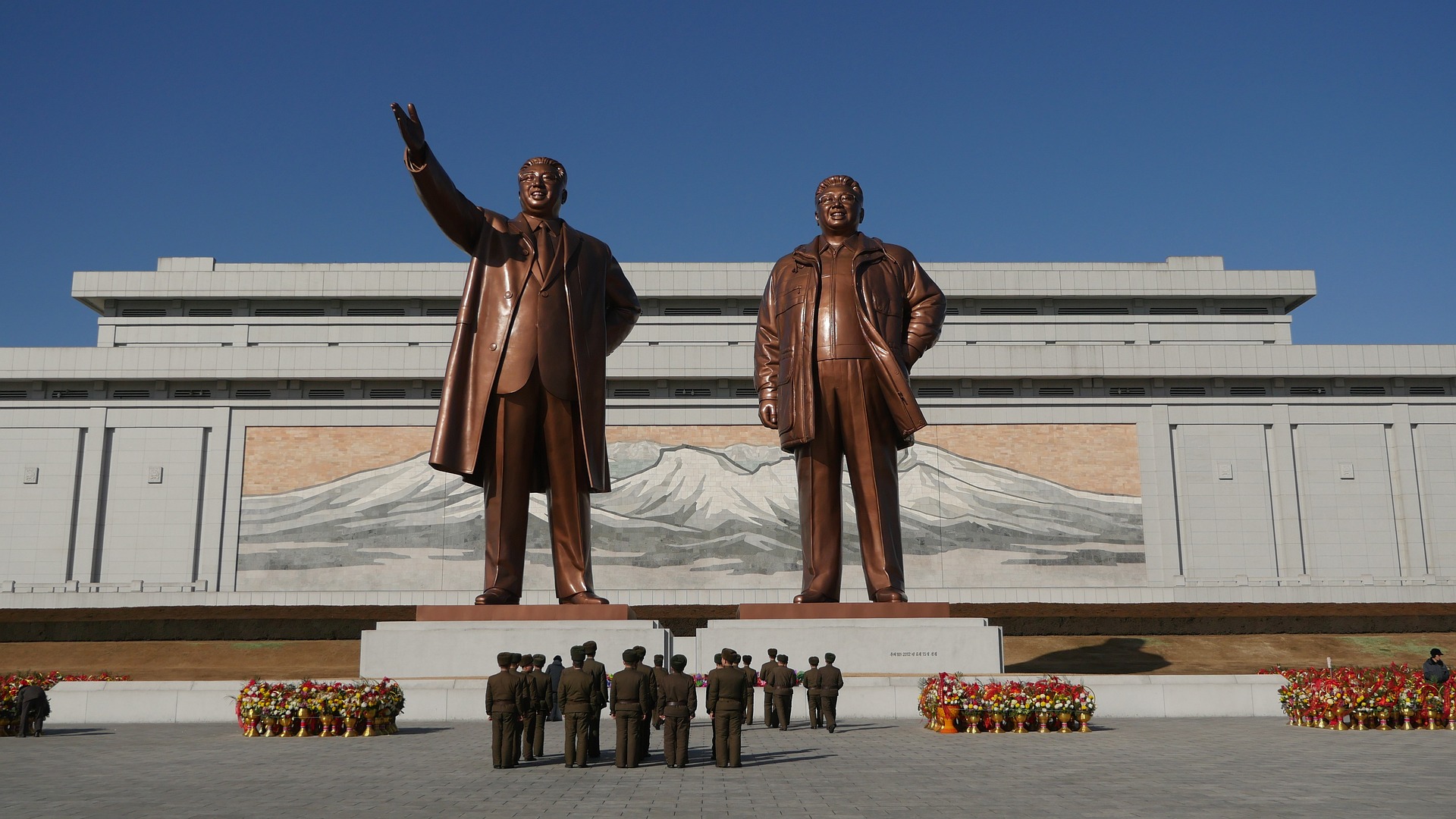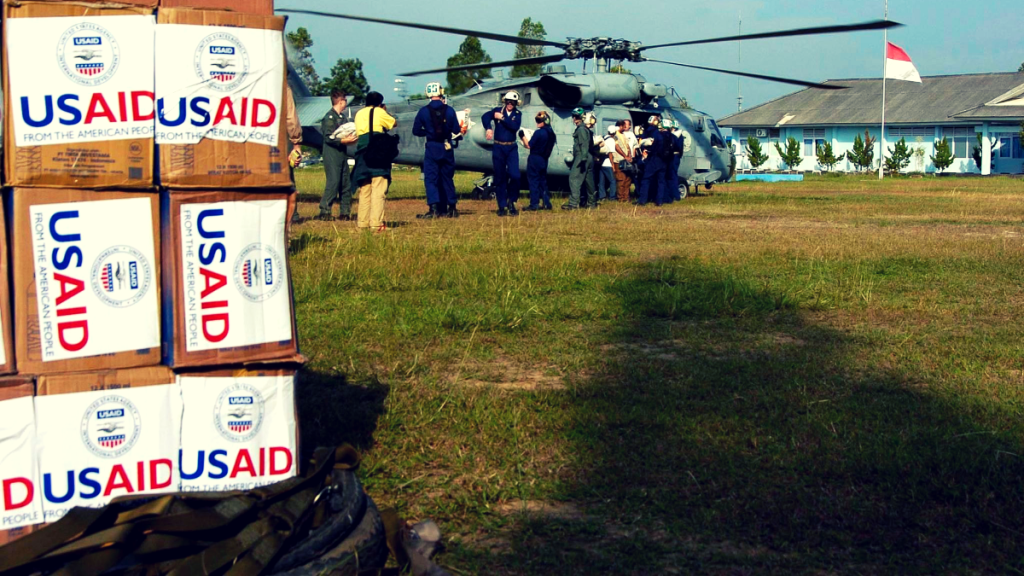Tag: foreign policy


Libya: a cautionary tale against interventionism
September 19, 2023 | Post
This month’s devastating floods affecting Libya have brought the country back to the forefront of international media. In the annals of international relations, Libya stands as a stark reminder of the perils of interventionism.

A realistic look at Iran’s nuclear program
April 28, 2023 | Post
Let’s take a brief look at the history of Iran’s nuclear program and former nuclear agreements to see where we might be headed.

Has interventionism jeopardized America’s future?
February 13, 2023 | Post
President Washington famously warned against entangling alliances in his farewell address to Congress. But now more than ever, it seems that escalations across the globe are tempting the United States to become increasingly involved in other countries’ dilemmas. American citizens and legislators must remember part of what made the American experiment so unique and resist the temptation of interventionism. Here’s why…

Why China’s aggressive expansionism in Arunachal Pradesh is completely unjustified
February 6, 2023 | Post
The Chinese regime’s claims on Arunachal Pradesh are wholly unjustified. The preference of a region’s inhabitants as well as international agreements are far more relevant factors when determining its status than claims based on ancient history and expansionist aggression.

A world unsafe for autocracy
October 26, 2022 | Post
It is clear that more prudent and proactive statecraft is needed; a doctrine that accepts that the sword cannot solve every problem and a retreat from world affairs will only leave space for uncertainty. Rather, the US should embrace the prospect of working alongside diverse partners to make the world more resilient to the forces that seek to undermine free societies.

Ukraine’s foreign policy is a matter for Ukrainians, not Putin
February 10, 2022 | Post
As a sovereign and independent nation, Ukraine’s foreign policy is not a matter to be determined by Vladimir Putin, the United States, or the European Union

There's one situation where classical liberals can justify foreign intervention.
October 3, 2017 | Post
For any kind of libertarian/classical liberal, the question with foreign policy is which course of action is going to most maximize liberty, both in the country that is potentially doing the intervening and the part of the world where the intervention might take place.

Highlights from our Reddit AMA with Professor Sarah Burns
May 19, 2017 | Post
Did you miss our recent Reddit AMA with Professor Sarah Burns of RIT’s political science department? You can find the whole conversation here, or check out some of the highlights below. Dr. Burns is a regular contributor to the Learn Liberty Blog, and starred in our series on America’s Founding. Adama82 Hi, thanks for […]

War, diplomacy, and global uncertainty in the Trump era
February 14, 2017 | Post
Are Trump’s cabinet full of generals, his openness to torture, and the “peace through strength” message from the White House all signs that he plans to rely on military power.

How Americans Can Use Economic Principles to Fight Terrorism
October 3, 2016 | Post
As professor Anne Bradley shows in this piece, the economic way of thinking can help us prepare for and respond to acts terrorism.

Debate Recap: How Did Trump and Clinton Perform?
September 27, 2016 | Post
Learn Liberty reviews the first presidential debate between Donald Trump and Hillary Clinton.

Trump Jr.’s Terrorism-Skittles Bowl Analogy
September 20, 2016 | Post
Your chances of encountering a lethal refugee are about 1 in 3.64 billion. Pardon me if I’m not quaking in my boots at those odds.

Senate Votes for Equal Slavery for Women
September 9, 2016 | Post
“Americans are so enamored of equality that they would rather be equal in slavery than unequal in freedom.” – Alexis de Tocqueville

Foreign Aid Is Taking Money From Poor People in Rich Countries and Giving it to Rich People in Poor Countries
September 8, 2016 | Post
After the 2010 earthquake in Haiti that killed around 250,000 people and displaced 1.5 million others, the billion dollar state-led humanitarian relief effort failed to accomplish even the most basic tasks like rebuilding houses. The situation remains dire with 80,000 people still living in “temporary” tent camps. In the new Learn Liberty video below, Professor […]

The Undesired Outcomes of Nation Building
September 7, 2016 | Post
Why did the United States invade Iraq? The pretense was that Iraq was harboring weapons of mass destruction. Another popular reason, however, was to make the country safe for democracy. The campaign – like so many foreign interventions – was “an abysmal failure,” says Professor Chris Coyne in the new Learn Liberty video below. Over […]

How Economics Can Explain Foreign Policy Failures
September 1, 2016 | Post
Why do foreign policy adventures so often go awry? In this week’s Learn Liberty video, Professor Abby Hall Blanco reveals how economic principles–like incentives and constraints—can explain the frequent poor outcomes of foreign policy. Incentives are usually defined by economists as the evaluation of the costs and benefits of a particular decision. But incentives may […]

The Government Spent 20 Years and Billions of Dollars on a Fighter Jet that Doesn’t Work
August 5, 2016 | Post
The F-35 fighter jet is the symbol of the corruption within the military-industrial complex and government waste. The Department of Defense first began developing it in 1994 in an attempt to create a fast, lightweight jet for multiple branches of the US army. However, the program has fallen far short of these goals, as reported […]

Are Foreign and Domestic Policy Really that Different?
July 28, 2016 | Post
Pundits like to talk about foreign and domestic policy as if they are completely separate concerns. But as University of Tampa professor Abby Hall has been explaining in Learn Liberty’s six part series on foreign policy, there is not as much distinction between them as people often think. In fact, foreign policy often boomerangs back […]

When Your Foreign Spying Program Become a Tool to Control Your Own People
July 22, 2016 | Post
The recent public fight between Apple and the FBI as well as the controversy over the Edward Snowden leaks make it seem as though government spying on American people is a recent phenomenon. In fact, government surveillance of U.S. citizens goes back over 100 years. Martin Luther King, for instance, was spied on extensively for […]

Policy Leaders Call This "The Worst Trade Deal Ever Negotiated." Here's How It's Impacting Americans.
July 21, 2016 | Post
According to policy leader Donald Trump, NAFTA is “the worst trade deal ever negotiated” and it needs to be renegotiated. He said, in fact, that it might even be worth the United States pulling out of NAFTA if better terms couldn’t be reached. Why? Trump’s worried that the trade deal is taking jobs away from […]

Presidential Candidates Have No Idea How to Stop Terrorism
June 25, 2016 | Post
In the wake of yet another terrorist attack, voters are putting an increasing amount of pressure on the candidates running for office this November to have a comprehensive plan to keep them safe from the threats of terrorist. But while voters are united in this demand, candidates are divided on how to deal with it. […]

Atomic Atrocities, Absent Apologies
June 1, 2016 | Post
Seventy-one years after the United States dropped two atomic bombs on Japan, killing about 140,000 people and ending World War II, Barack Obama last week became the first sitting American president to visit Hiroshima, to commemorate what everyone (regardless of whether he or she thinks it was justified) can agree was a devastating tragedy. And […]

A Seemingly Harmless Policy Debate Could Mean the Difference Between Life and Death for Our Armed Forces
May 30, 2016 | Post
No matter what our views on U.S. foreign policy, Memorial Day is traditionally a time where we put aside our differences and remember those who sacrificed their lives while in service to our country. But as we honor them, we cannot forget that it’s also our responsibility to prevent as many future deaths in our […]

The Single Best Way to Honor Our Armed Forces Is to Stop Sending Them Into Harm's Way
May 20, 2016 | Post
Saturday is Armed Forces Day, which honors Americans serving in the five military branches – the Army, Navy, Marine Corps, Air Force, and Coast Guard. Their contributions to defending American freedom deserve honor every day of the year. But part of honoring the Armed Forces also means recognizing that they should only be put in […]

